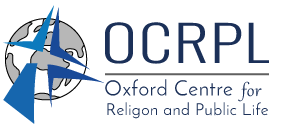This article originally featured on Global Christian News
Baroness Hale, Deputy President of the UK Supreme Court and the most senior woman judge in the land, recently reviewed growing tensions between religion and UK equality law. Chris Sugden and Vinay Samuel review her lecture

Baroness Hale in her lecture ‘The conflict of equalities, religion, gender and sexual orientation’, looked at all the cases brought in recent years by campaigning groups such as Christian Concern and the Christian Institute. The cases involved requests to avoid providing services to same-sex couples on grounds of religious conscience; whether a registrar can have an opt-out from taking civil partnership ceremonies; whether employees can wear crosses at work and whether a counsellor can reasonably opt out of giving sex therapy to same sex couples.
An analysis of the British Political Tradition by David Marsh and Matthew Hall suggests that the dominant tradition is “an elitist conception of democracy in the idea Westminster and Whitehall know best” . Governance including law-making should be left to political elites who are knowledgeable and effective. Baroness Hale indicated in this lecture that the Law courts should be added to the elites who ‘know best’.
Baroness Hale contention seems to be that the lawyers know best about morals and ethics and religion is only sentiment: Christian faith has no core beliefs and its truth cannot be ascertained in the same way as the rules of society.
All this has been upended by Brexit, Momentum and Donald Trump. People described by the elites as uninformed in the UK and as “deplorables” in the USA used the ballot box to reject views and policies that imposed immigration without attention to borders, public policy without attention to religion, and supra-national identity without attention to sovereignty, towards a globalised world of porous identities where everyone could go somewhere but no one belonged anywhere. People for whom their ‘somewhere’ was most important have rebelled. They concluded that the liberal elites had not met their economic needs and broken up their families and communities.
This upheaval creates important space for the church which has dialogued with and accompanied the elites, but was never meant to bless them. Grounded in the authority of revelation it represents a ‘different king” and is meant to contest every political tradition.

Many still think the church is part of the elite or the establishment. So Justin Welby surprised a highly placed politician who questioned what could be wrong with the British Government’s values drive. The “very senior politician” said, “are you seriously going to tell me that I don’t call someone an extremist if they say that their faith is more important than the rule of law?”
Justin Welby responded: ‘Well, you’ve got a real problem here because for me personally my faith is more important than the rule of law so you’ve got an extremist sitting in here with you. We do not believe as Christians that the rule of law outweighs everything else, we believe that the kingdom of God outweighs everything else.”
Progressive elites try to manage those who challenge their views ideologically by suggesting that progressive social and moral views represent a moderate position. Thus casting more traditional or conservative views as ‘extremes’. This applies the language of politics and power to the world of religion and relationships. Should a soldier be fully committed to his sovereign or only moderately and try and see the other side’s point of view if his sovereign were attacked? Do athletes train only moderately or push themselves to the limit as extremists? Paul’s word for moderate was double-minded.
‘Progressives’ are particularly hard on religious people who appeal to a transcendent authority as the source and legitimation of their views. In spite of a well-argued and established tradition of warranted belief, religious positions are dismissed as mere opinions and sentiments and intellectually weak.
Addressing the conflict of equalities, Baronness Hale did not appear to notice that it was primarily a conflict of “authorities” that is as old as religion and society. Do laws created by Westminster and defined and interpreted by law courts have a finality that cannot be contested by people of faith who, while citizens of a nation also see themselves as subject to a divine law? When Christians and others affirm that their loyalty is not to the latest cultural fashion of the liberal elite but to a higher authority, the elite define them as extremist.
Progressive elites use the idea of a “Post-Truth World” to see every ethical position and morality as a mere preference. A post-truth world has no space for an authority that is not the product of human political process.
Rights and equalities keep evolving and get legitimized by evolved authorities. For religious people their ethical code is based on transcendent unchanging authority – created, collective values that have stood the test of time.
Who has the authority to define equality and decide what are legitimate and illegitimate grounds for equal treatment?
The church appears to have allowed the elites to define equality on the basis of an implied natural law – all sexualities are equal, and on the basis of the rise of individual choice and the decline of collective values. The church must engage the ideas at the root of this liberal consensus with its own truths that have stood the test of time.
There is no need to fear. Christians must challenge this liberal consensus from the stand standpoint of revelation, by faith, prayer and building communities of resistance in collaboration with others who also take their values from religion, natural law, and the common good.


